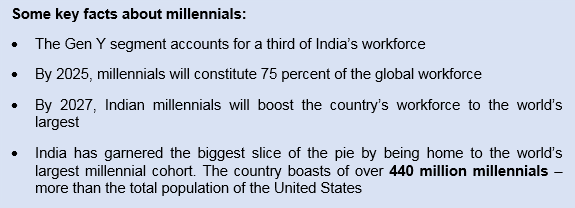“If I have seen further, it is by standing upon the shoulders of giants.”
The above quote is from a letter written in 1675 by one of the greatest scientists to have ever walked the face of the earth – Sir Isaac Newton – who acknowledged that his contributions were made possible because of the great minds who blazed a trail of discoveries before him. To this day, even after more than three centuries, the essence of this dictum remains vivid and the vision dramatic. Arguably, Newton was a giant himself. His laws of motion and gravitation revolutionized the very concepts of science. Newtonian physics remained uncontested for more than two centuries until Einstein presented his gigantic theories of relativity – time and space were no longer absolute, and gravity was now seen as a ‘curvature’ of space-time.
So, did Einstein prove Newton ‘wrong’? Newton’s laws are still taught universally. Scientists and engineers live, breathe, sleep, and dream Newton’s equations that still find due relevance on a daily basis, and are applied even while sending space probes to celestial destinations. Einstein’s theory extends to the regimes of high speeds (approaching that of light) and ultra-powerful gravity – where Newtonian mechanics breaks down. Newton’s work was foundational. There was a limit, however, to how far he could see.
Einstein stood on Newton’s shoulders to view further and decipher a deeper, broader, and more profound understanding that encompassed those of Newton. More than ‘right’ or ‘wrong’ – science marched forward. Modern-day science is the culmination of giants on the shoulders of giants and so on, ultimately leading us into next-generation scientific breakthroughs.
Newtonian Physics and Its Relevance to Human Capital
You must be wondering how this has any relevance to ‘human capital’, and why should you care? With the red carpets dusted off and rolled out for the youngest crop of employees (Gen-Z), today’s workforce comprises of four distinct generations. Progress requires newer generations to benefit from the expertise and wisdom of the ones that precede them. Cutting-edge technologies are yielding new forms of intelligence, but ‘human intelligence’ is not yet obsolete. What makes us uniquely human will continue to be special and remarkable – at least, until the evolutionary torch gets passed onto AI or another super-intelligent successor. More than fanciful philosophical debates around the ‘destiny of humankind’, we need to understand that as long as we rely upon human expertise, it is absolutely essential to pass on the knowledge for posterity.

Undisputedly, the Gen Y folks are set to become more pronounced in the world of work. With millennials eclipsing the older generations to represent the future of work, there are more than 440 million reasons as to why they matter more than ever. While the younger millennials and Gen Zers are queuing in large numbers to board ‘India Inc.’, a mass exodus of workplace ‘giants’ is being witnessed simultaneously – many of whom are in the driver’s seat. The youngest boomer is a quinquagenarian – turning 55 this year. The time is short and the need is critical – never have we expected more of Boomer leadership.
According to a recent Deloitte survey, millennials expressed that employers are coming up short in nurturing their ‘soft’ skills – an assortment of abilities ranging from interpersonal skills to emotional intelligence. Moreover, World Economic Forum’s ‘Future of Jobs Report 2018’ alerts us to the changing skill equation: by 2022, ‘human’ skills will retain or increase in value as technology advances. In fact, the warning signs are everywhere. Millennials seek to build these competencies not because they are impatient newbies who want to microwave wisdom, but rather because NOW is the time to launch massive efforts in learning, practising, and improving these uniquely human skills – that are anything but ‘soft’.
Closing the Skill Gap
Who are the best people to help close the skill gap? The seasoned pros who have ‘been there, done that’. While several attributes embody an exemplary leader, the one trait that stands out is a leader’s passion for serving as a mentor in empowering budding experts to reach their full potential.
Mentoring has the power to render the much-revered tacit knowledge explicit.
In my career so far, I have had the good fortune of being mentored by ‘giants’ who chose to be great, rather than merely big. It is largely because of such skilled mentors that I was drawn to write this article, and partly because I have witnessed the other kind as well.
Like holding onto gold, some leaders tend to lock their repositories of knowledge and wisdom in a ‘secret’ deposit vault, clutching the keys tightly in their hands – thus depriving young talents of the necessary skills and support.
Unjust to the team, you say? Unjust to the organization, you say? Unjust to the economy, you say? I say, unjust to the human civilization.
One of the prime causes to this complex issue is obvious: knowledge is seen as a source of power and therefore, hoarded. The KM world antidote to this problem is simple: a cultural shift from “knowledge is power” to “sharing knowledge is more powerful.’’ While the principle of this neat proverb is easy to understand, ingraining it in everyday ethos is difficult and challenging.
Organizations are now looking at various rewards and recognition programs to instill a knowledge sharing culture – from rolling out cash incentives to entrenching mentoring in performance goals. To a great extent, such reinforcements are robust in stimulating knowledge flows. However, I humbly submit that mentoring, whether formal or otherwise, starts at the heart of a leader with a core intrinsic desire to pass down the knowledge and leave a constructive legacy for future generations.
The Legacy of Leadership
In 'Your Leadership Legacy’, a book from Harvard Business School, the authors convincingly argue that no matter how far you are from retirement, framing and shaping your legacy can help you become a better leader today. ‘Legacy Thinking’ is a practical day-to-day tool through which leaders can consciously assess their daily decisions and actions. These findings chime with several recent studies. More than often, leaders find themselves choked by the sheer volume of business responsibilities. However, taking time to examine your desired legacy will make a difference in your everyday impact as a leader. It is an investment well worth making. After all, every leader needs a clock and a compass, to balance both short-term and long-term priorities. Let the legacy you wish to create serve as a compass to guide your leadership journey.
As a leader, the baton you are carrying is not a hollow cylinder passed from one relay runner to another. Wielding the baton is like wielding Mjolnir – Thor’s mighty hammer. Each act of mentoring can uplift spirits and make young professionals capable of lifting the baton a little more, and eventually, enable them to fully wield it.
It is my fond hope that leaders receive these words with an open heart and intentionally choose to invest their acquired wisdom into the lives of next-generation leaders who can build further on what you have created.
Bloomberg. (2017). India Seen Topping Global Labor Force in Next Decade.
Deloitte. (2018). Millennials disappointed in business, unprepared for Industry 4.0.
Deloitte. (2014). Big demands and high expectations – The Deloitte Millennial Survey.
Morgan Stanley. (2017). India’s Millennials to Drive Growth in Four Key Sectors.
RAI – Deloitte. (2019). Unravelling the Indian Consumer.
Do you look forward to permanently working from home after the pandemic subsides?
Trending
-
SBI General Insurance Launches Digital Health Campaign
-
CredR Rolls Out 'Life Happens' Leave For Its Employees
-
Meesho Announces 30-Week Gender-Neutral Parental Leave Policy
-
Microsoft Unveils Tech Resilience Curriculum To Foster An Inclusive Future
-
60% Indian Professionals Looking For Job Change Due To COVID: Survey
-
SpringPeople And Siemens Collaborate For Digital Transformation Push
-
86% Professionals Believe Hybrid Work Is Essential For Work Life Balance: Report
-
Almost 1 In Every 3 People's Personal Life Affected Due To Work Stress
-
Meesho Rolls Out Reset And Recharge Policy For Employees
-
80% Of Talent Leaders & Academics Say Pandemic Changed Skill Needs For Youth: Report
-
Hero Electric Rolls Out 'Hero Care' Program For Employees
-
Human Capital In Collaboration With ASSOCHAM Hosts Virtual Conference
-
IKEA India, Tata STRIVE Collaborate To Create Employability And Entrepreneurship Opportunities
-
SAP India, Microsoft Launch Tech Skilling Program for Young Women
-
DXC Technology, NASSCOM Collaborate For Employability Skills Program
-
Lenskart To Hire Over 2000 Employees Across India By 2022
-
Mindtree Launches Learn-and-Earn Program
-
Tata AIA Extends 'Raksha Ka Teeka' To Its Employees
-
Swadesh Behera Is The New CPO Of Titan
-
NetConnect Global Plans To Recruit 5000 Tech Professionals In India
-
Hubhopper Plans To Hire 60% Of Indian Podcasters By 2022
-
Corporate India Needs More Women In Leadership Roles: Report
-
Aon to Invest $30 Million and Create 10,000 Apprenticeships by 2030
-
Tech Mahindra Launches ‘Gift a Career’ Initiative for Upskilling of Youth
-
40% Women Prefer Flexible Working Options in Post-COVID World: Survey
-
3 out of 4 companies believe they can effectively hire employees virtually: Report
-
Vodafone , CGI and NASSCOM Foundation launch digital skills platform
-
Odisha: Bank, postal employees to deliver cash for elderly, differently-abled persons
-
Skill India launches AI-based digital platform for "Skilled Workforce"
-
Hiring activity declines 6.73% in first quarter: Survey
-
70% startups impacted by COVID-19 pandemic
-
Bajaj Allianz Life ropes in Santanu Banerjee as CHRO
-
Over 70 Percent MSMEs look at cutting jobs to sustain businesses
-
93 Per Cent employees stressed about returning to office post-lockdown
-
Johnson & Johnson India announces family benefits for same gender partners
-
Indian firms turning friendly towards working mothers
-
Welspun India names Rajendra Mehta as new CHRO
-
Wipro partners with NASSCOM to launch Future Skills platform



Human Capital is niche media organisation for HR and Corporate. Our aim is to create an outstanding user experience for all our clients, readers, employers and employees through inspiring, industry-leading content pieces in the form of case studies, analysis, expert reports, authored articles and blogs. We cover topics such as talent acquisition, learning and development, diversity and inclusion, leadership, compensation, recruitment and many more.
Subscribe Now









































Comment